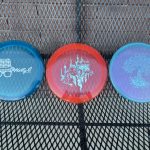Disc golf, a sport that combines the precision of golf with the excitement of frisbee, has been gaining popularity in recent years. As the community grows, so does the importance of etiquette and sportsmanship. In this article, we’ll explore how the disc golf community is evolving and what role etiquette plays in shaping the sport.
A Brief History of Disc Golf
Disc golf has its roots in the 1960s, when a group of friends in Blodgett, Oregon, created a makeshift course using baskets and trees. The sport gained popularity throughout the 1970s and 1980s, with the first official tournament held in 1967. Today, there are over 6,000 disc golf courses in the United States alone, with the sport gaining popularity worldwide.
The Rise of Etiquette
As the sport grew, so did the need for etiquette guidelines. In the early days, players often followed the unwritten rules of golf, such as respecting other players and not littering. However, as the sport became more mainstream, it became clear that specific guidelines were needed to ensure a positive and enjoyable experience for all players.
PDGA’s Role in Etiquette
The Professional Disc Golf Association (PDGA) is the governing body for the sport, and it plays a crucial role in shaping etiquette guidelines. The PDGA has developed a comprehensive set of rules and guidelines, including the “PDGA Rules of Play,” which covers topics such as course etiquette, player conduct, and equipment.
Etiquette Best Practices
So, what does good etiquette look like in disc golf? Here are some best practices to follow:
- Respect other players: Let faster players play through and keep an eye out for beginners who may need guidance.
- Keep the course clean: Pick up trash and dispose of it properly to keep the course clean and safe.
- Repair damage: Fix any damage caused by your play, such as repairing divots or replacing damaged signs.
- Be mindful of noise: Keep noise levels down to avoid disturbing other players or wildlife.
- Follow course rules: Pay attention to course signs and follow any specific rules or guidelines.
The Impact of Etiquette on the Sport
Etiquette is not just about following rules; it’s about creating a positive and enjoyable experience for all players. When players follow etiquette guidelines, it can:
- Improve the overall player experience: By respecting other players and the course, players can enjoy the game more and feel a sense of community.
- Encourage new players: Etiquette guidelines can make new players feel welcome and included, encouraging them to join the sport.
- Increase course maintenance: When players follow etiquette guidelines, courses are more likely to be well-maintained, which can improve the overall playing experience.
Conclusion
As the disc golf community continues to grow, etiquette will play an increasingly important role in shaping the sport. By following etiquette guidelines, players can create a positive and enjoyable experience for themselves and others. Whether you’re a seasoned pro or a beginner, remember to respect other players, keep the course clean, and follow course rules. Together, we can make disc golf a sport that is both fun and sustainable.
FAQs
Q: What is the PDGA’s role in etiquette?
A: The PDGA is the governing body for disc golf and plays a crucial role in shaping etiquette guidelines. The PDGA has developed a comprehensive set of rules and guidelines, including the “PDGA Rules of Play.”
Q: What are some etiquette best practices for disc golf?
A: Some etiquette best practices include respecting other players, keeping the course clean, repairing damage, being mindful of noise, and following course rules.
Q: How does etiquette impact the sport of disc golf?
A: Etiquette can improve the overall player experience, encourage new players, and increase course maintenance. By following etiquette guidelines, players can create a positive and enjoyable experience for themselves and others.








